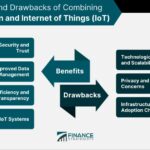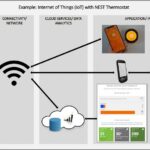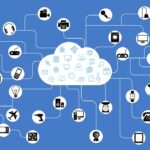The Internet of Things (IoT) has revolutionized the way businesses operate, providing numerous opportunities for growth and innovation. This article explores successful IoT examples in various industries, highlighting the impact of IoT on operational efficiency, customer experience, supply chain management, manufacturing, retail, healthcare, and agriculture. Through real-life examples, we will uncover the key takeaways from these successful IoT implementations.
Key Takeaways
- IoT enhances operational efficiency, improves customer experience, and optimizes supply chain management.
- In manufacturing, IoT enables predictive maintenance, smart inventory management, and real-time quality control.
- Retail businesses can leverage IoT for personalized marketing strategies, smart shelves, and enhanced customer engagement.
- In the healthcare industry, IoT facilitates remote patient monitoring, smart medical devices, and improved operational efficiency.
- Agriculture benefits from IoT through precision farming, crop monitoring and management, and smart irrigation systems.
The Impact of IoT in Business

Enhancing Operational Efficiency
Enhancing operational efficiency is one of the key benefits of implementing IoT in business. By connecting devices and collecting real-time data, companies can gain valuable insights into their operations and identify areas for improvement. For example, IoT sensors can monitor equipment performance and detect potential issues before they cause downtime. This proactive approach to maintenance can significantly reduce unplanned downtime and increase productivity. Additionally, IoT can automate manual processes, such as inventory management and supply chain tracking, streamlining operations and reducing human error. Overall, IoT enables businesses to optimize their processes, improve efficiency, and ultimately, drive cost savings.
Improving Customer Experience
Improving customer experience is a key focus for businesses in the era of IoT. By leveraging IoT technologies, companies can gather valuable data about customer behavior and preferences, allowing them to personalize their offerings and provide a seamless and convenient experience. For example, retailers can use IoT sensors to track customer movement within their stores, analyze buying patterns, and offer targeted promotions or recommendations. This not only enhances the overall shopping experience but also increases customer satisfaction and loyalty.
Optimizing Supply Chain Management
Optimizing supply chain management is crucial for businesses to streamline their operations and improve overall efficiency. By leveraging IoT technologies, companies can gain real-time visibility into their supply chain processes, enabling them to make data-driven decisions and proactively address any bottlenecks or disruptions. IoT sensors and devices can be deployed at various points along the supply chain, collecting valuable data on inventory levels, transportation conditions, and production status. This data can then be analyzed to identify areas for optimization, such as reducing inventory holding costs, minimizing transportation delays, and improving order fulfillment. With IoT-enabled supply chain management, businesses can achieve greater agility, cost savings, and customer satisfaction.
IoT Applications in Manufacturing
Predictive Maintenance
Predictive maintenance is a key application of IoT in the manufacturing industry. By leveraging sensor data and advanced analytics, companies can proactively identify potential equipment failures and schedule maintenance activities before breakdowns occur. This approach not only reduces downtime and maintenance costs but also improves overall operational efficiency. For example, a manufacturing plant can use IoT-enabled sensors to monitor the condition of machinery in real-time and detect any anomalies or signs of wear and tear. By analyzing this data, maintenance teams can predict when a machine is likely to fail and take preventive measures to avoid costly disruptions.
In addition to predictive maintenance, IoT can also enable remote monitoring of equipment, allowing manufacturers to gather real-time data on performance and identify areas for optimization. By continuously monitoring equipment health and performance, manufacturers can make data-driven decisions to improve productivity, reduce energy consumption, and extend the lifespan of their assets.
To summarize, predictive maintenance is revolutionizing the manufacturing industry by leveraging IoT technology to proactively identify and address equipment failures. By implementing IoT-enabled sensors and advanced analytics, manufacturers can optimize maintenance schedules, reduce downtime, and improve overall operational efficiency.
Smart Inventory Management
Smart inventory management is a crucial aspect of IoT applications in manufacturing. By leveraging IoT technology, businesses can gain real-time visibility into their inventory levels, enabling them to optimize their supply chain and reduce costs. With sensors and connected devices, companies can track inventory levels, monitor product expiration dates, and automatically reorder items when stock is low. This not only helps prevent stockouts and overstocking but also improves overall operational efficiency.
In addition, IoT-enabled inventory management systems can provide valuable insights and analytics. By analyzing data on inventory turnover, demand patterns, and customer preferences, businesses can make data-driven decisions to improve their inventory management strategies. They can identify slow-moving items, forecast demand more accurately, and adjust their inventory levels accordingly. This leads to better inventory control, reduced waste, and improved profitability.
Implementing a smart inventory management system requires careful planning and integration with existing systems. Companies need to ensure that their IoT devices and sensors are compatible with their inventory management software and that data is securely transmitted and stored. It is also important to train employees on how to use the system effectively and interpret the data generated. By investing in smart inventory management, businesses can streamline their operations, reduce costs, and stay competitive in today’s fast-paced manufacturing industry.
Real-time Quality Control
Real-time quality control is a critical aspect of manufacturing processes. It involves continuously monitoring and analyzing product quality during production to ensure that it meets the desired standards. By leveraging IoT technologies, manufacturers can implement automated systems that collect and analyze data in real-time, allowing for immediate detection of any quality issues. This enables proactive measures to be taken, such as adjusting production parameters or identifying faulty components, to prevent defective products from reaching the market. With real-time quality control, manufacturers can improve product quality, reduce waste, and enhance customer satisfaction.
IoT in Retail: Revolutionizing the Shopping Experience

Personalized Marketing Strategies
Personalized marketing strategies leverage customer data to deliver targeted and relevant content to individual consumers. By analyzing customer preferences, behaviors, and purchase history, businesses can create tailored marketing campaigns that resonate with their target audience. This approach allows companies to provide a more personalized and engaging experience, increasing customer satisfaction and loyalty. Additionally, personalized marketing strategies can lead to higher conversion rates and improved return on investment (ROI).
Smart Shelves and Inventory Tracking
Smart shelves and inventory tracking systems are revolutionizing the retail industry. These innovative technologies use IoT sensors and RFID tags to monitor and manage inventory in real-time. By automatically tracking the movement and availability of products, retailers can optimize their supply chain, reduce out-of-stock situations, and improve overall operational efficiency. With smart shelves, retailers can also gather valuable data on customer behavior and preferences, allowing them to personalize marketing strategies and enhance the shopping experience.
Enhanced Customer Engagement
Enhanced customer engagement is a key benefit of IoT in the retail industry. By leveraging IoT technologies, retailers can create personalized marketing strategies that target individual customers based on their preferences and behaviors. This allows for more effective and targeted advertising campaigns, leading to higher customer engagement and conversion rates. Additionally, IoT enables the implementation of smart shelves and inventory tracking systems, which provide real-time data on product availability and location. This not only improves the shopping experience for customers by ensuring that the desired products are always in stock, but also allows retailers to optimize their inventory management and reduce costs. Furthermore, IoT can enhance customer engagement through technologies such as smart mirrors and interactive displays, which provide personalized product recommendations and enable customers to virtually try on clothing or test products before making a purchase. These interactive experiences not only increase customer satisfaction but also drive sales and foster brand loyalty.
IoT Solutions for Healthcare Industry

Remote Patient Monitoring
Remote Patient Monitoring (RPM) is a crucial application of IoT in the healthcare industry. It allows healthcare providers to monitor patients’ health conditions remotely, reducing the need for frequent hospital visits. RPM utilizes connected devices, such as wearable sensors and mobile apps, to collect and transmit real-time health data to healthcare professionals. This data includes vital signs, medication adherence, and activity levels. By continuously monitoring patients, healthcare providers can detect any abnormalities or changes in health status early on, enabling timely interventions and personalized care plans.
One of the key benefits of RPM is its ability to improve patient outcomes and reduce healthcare costs. With RPM, patients can receive proactive and preventive care, leading to better management of chronic conditions and reduced hospital readmissions. Additionally, RPM enables healthcare providers to optimize their resources and allocate them more efficiently. By remotely monitoring patients, healthcare professionals can prioritize their attention and focus on patients who require immediate intervention.
To illustrate the impact of RPM, let’s take a look at a hypothetical example:
| Patient | Condition | RPM Data | Intervention |
|---|---|---|---|
| John | Diabetes | Blood glucose level: 180 mg/dL | |
| Heart rate: 90 bpm | |||
| Activity level: Low | Automated alert sent to healthcare provider | ||
| Healthcare provider contacts John to adjust medication dosage and provide dietary recommendations |
In this example, RPM enables early detection of high blood glucose levels and triggers an automated alert to the healthcare provider. The healthcare provider can then intervene promptly by adjusting medication dosage and providing dietary recommendations to prevent complications.
In conclusion, Remote Patient Monitoring is revolutionizing healthcare by enabling continuous monitoring, proactive care, and personalized interventions. It empowers patients to actively participate in their own healthcare and improves overall patient outcomes. With the advancements in IoT technology, RPM is expected to play an even more significant role in the future of healthcare.
Smart Medical Devices
Smart medical devices are revolutionizing the healthcare industry by providing advanced monitoring and diagnostic capabilities. These devices, equipped with sensors and connectivity features, enable healthcare professionals to remotely monitor patients’ vital signs and health conditions in real-time. This allows for early detection of potential health issues and timely intervention, leading to improved patient outcomes and reduced healthcare costs. Additionally, smart medical devices can automate data collection and analysis, streamlining the healthcare workflow and enhancing operational efficiency. With the integration of artificial intelligence and machine learning algorithms, these devices can provide personalized insights and recommendations for patients, empowering them to take control of their own health.
Improved Operational Efficiency
Improved operational efficiency is one of the key benefits of implementing IoT solutions in various industries. By leveraging IoT technologies, businesses can streamline their operations, automate processes, and optimize resource allocation. For example, in the manufacturing sector, IoT-enabled predictive maintenance systems can help identify potential equipment failures before they occur, reducing downtime and improving overall productivity. Similarly, in the healthcare industry, remote patient monitoring devices can enable healthcare providers to monitor patients’ health conditions in real-time, allowing for timely interventions and reducing the need for hospital visits. Overall, IoT solutions play a crucial role in enhancing operational efficiency across different sectors.
The Role of IoT in Agriculture

Precision Farming
Precision farming, also known as precision agriculture, is a farming management concept that utilizes technology to optimize crop production and increase efficiency. It involves the use of various tools and techniques, such as GPS, sensors, drones, and data analytics, to gather and analyze data about soil conditions, weather patterns, crop health, and other factors. This data-driven approach enables farmers to make informed decisions about irrigation, fertilization, pest control, and other farming practices. By applying the right amount of inputs at the right time and in the right place, precision farming helps minimize waste, reduce environmental impact, and maximize yield. It empowers farmers to achieve higher productivity and profitability while ensuring sustainable and responsible farming practices.
Crop Monitoring and Management
Crop monitoring and management is a crucial aspect of modern agriculture. With the help of IoT technology, farmers can gather real-time data on various parameters such as soil moisture, temperature, and nutrient levels. This data can be analyzed to make informed decisions about irrigation, fertilization, and pest control. By monitoring crops remotely, farmers can identify potential issues early on and take proactive measures to prevent crop damage or yield loss. IoT-enabled sensors and actuators can also automate certain tasks, such as adjusting irrigation systems based on real-time weather conditions. Overall, IoT solutions for crop monitoring and management offer farmers greater control and efficiency in their agricultural practices.
Smart Irrigation Systems
Smart irrigation systems are a key application of IoT in the agriculture industry. These systems leverage sensors, weather data, and automation to optimize water usage in farming. By monitoring soil moisture levels and weather conditions in real-time, farmers can ensure that crops receive the right amount of water at the right time. This not only improves crop yield and quality but also conserves water resources. Additionally, smart irrigation systems can be remotely controlled and monitored, allowing farmers to make adjustments and detect issues promptly. Overall, the implementation of smart irrigation systems brings efficiency and sustainability to agricultural practices.
Conclusion
In conclusion, the examples discussed in this article demonstrate the immense potential of IoT in business. From improving operational efficiency to enhancing customer experiences, IoT has proven to be a game-changer. Companies that have successfully implemented IoT solutions have gained a competitive edge and achieved significant cost savings. As technology continues to advance, we can expect even more innovative and successful IoT applications in various industries. It is clear that embracing IoT is no longer an option but a necessity for businesses looking to thrive in the digital age.
Frequently Asked Questions
What is the impact of IoT in business?
IoT has a significant impact on business by enhancing operational efficiency, improving customer experience, and optimizing supply chain management.
What are some IoT applications in manufacturing?
Some IoT applications in manufacturing include predictive maintenance, smart inventory management, and real-time quality control.
How is IoT revolutionizing the shopping experience in retail?
IoT is revolutionizing the shopping experience in retail through personalized marketing strategies, smart shelves and inventory tracking, and enhanced customer engagement.
What are some IoT solutions for the healthcare industry?
Some IoT solutions for the healthcare industry include remote patient monitoring, smart medical devices, and improved operational efficiency.
What is the role of IoT in agriculture?
The role of IoT in agriculture includes precision farming, crop monitoring and management, and smart irrigation systems.
How does IoT enhance operational efficiency in the healthcare industry?
IoT enhances operational efficiency in the healthcare industry by enabling remote patient monitoring, optimizing resource allocation, and automating routine tasks.




